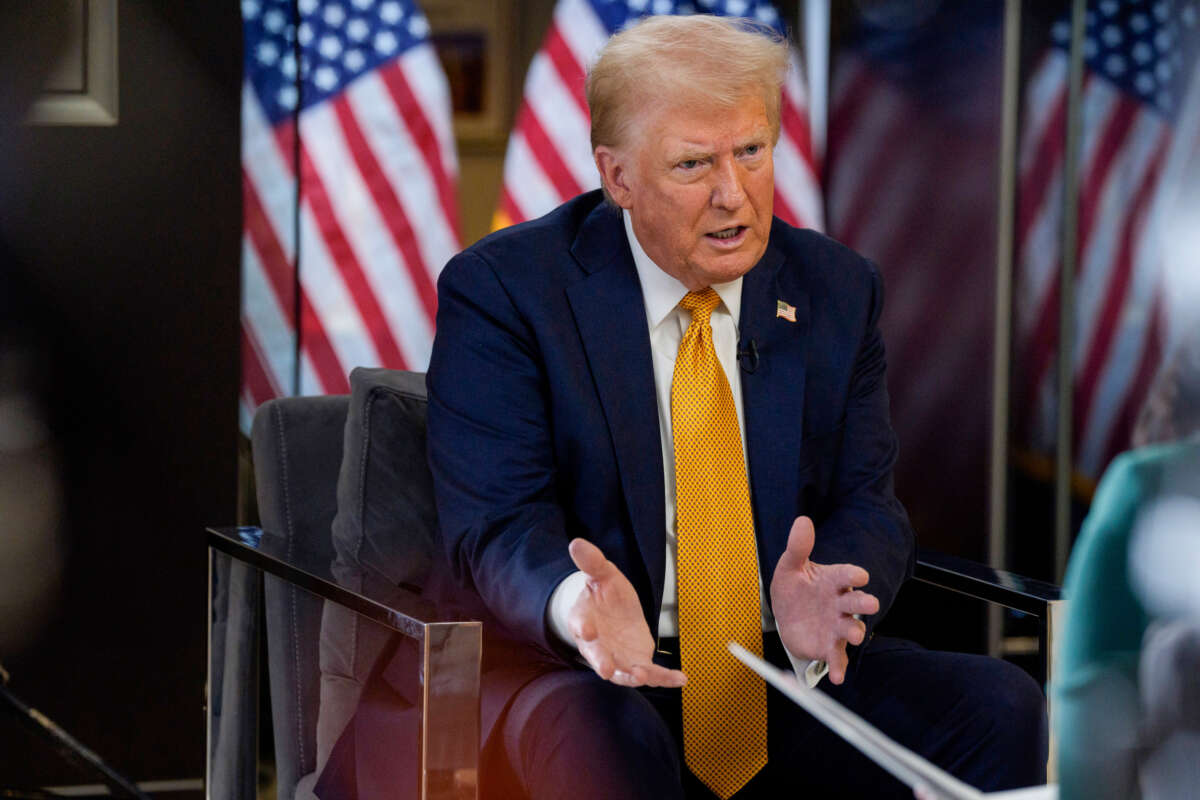Over the weekend, President-elect Donald Trump expressed a desire to end birthright citizenship — a right conferred to every individual born in the United States — through executive order, an action that would be in violation of the 14th Amendment of the Constitution.
Trump made his comments during an interview with NBC “Meet the Press” host Kristen Welker. When asked if ending birthright citizenship through an executive order was still a day-one plan for him upon reentering the White House, Trump responded by saying “absolutely.”
Welker challenged Trump on the legality of his proposal, noting that an executive order from a president cannot supersede provisions found in the Constitution. Trump responded that, if his order isn’t successful, he’d push for other ways to end birthright citizenship.
“We’re going to have to get it changed, we maybe have to go back to the people, but we have to end it,” Trump said in his remarks, wrongly adding that the U.S. is “the only country that has” birthright citizenship.
In fact, around three dozen countries around the world — including most in the Western Hemisphere — have birthright citizenship enshrined as law within their jurisdictions.
Birthright citizenship is a constitutional right, according to the first clause of the 14th Amendment, which was passed at the end of the Civil War. It reads:
All persons born or naturalized in the United States, and subject to the jurisdiction thereof, are citizens of the United States and of the State wherein they reside.
Although passed in large part to ensure that formerly enslaved Black Americans would receive the same rights as white citizens, the 14th Amendment also sought to ensure that all future residents born in the country would receive such rights, consistent with Lincolnesque Republicans’ views on immigration at the time.
Republicans today, however, including Trump, are openly advocating for getting rid of birthright citizenship, despite the fact that most in the U.S. are largely supportive of it remaining the law of the land. Legal experts say that Trump cannot undo birthright citizenship simply through a stroke of his pen, and that an entirely new constitutional amendment would be required to change the standard. Any attempt to undo birthright citizenship — short of an effort to change the Constitution itself — would undoubtedly be countered with legal challenges.
“Birthright citizenship is not a policy choice, it is a constitutional imperative,” said Sherrilyn Ifill, a civil rights lawyer and former president and director-counsel of the NAACP Legal Defense Fund. “It can no more be signed away by Executive Order than the First Amendment.”
Within the same interview, Trump was asked what his administration planned to do about “mixed status” families — families living in the U.S. that include both citizens and undocumented immigrants. Under his policies, Trump said, all could be deported, including those who have attained citizenship status.
“I don’t want to be breaking up families,” Trump claimed, despite the fact that his previous administration implemented the notoriously cruel family separation policy at the border. “So the only way you don’t break up the family is you keep them together and you have to send them all back.”
Angry, shocked, overwhelmed? Take action: Support independent media.
We’ve borne witness to a chaotic first few months in Trump’s presidency.
Over the last months, each executive order has delivered shock and bewilderment — a core part of a strategy to make the right-wing turn feel inevitable and overwhelming. But, as organizer Sandra Avalos implored us to remember in Truthout last November, “Together, we are more powerful than Trump.”
Indeed, the Trump administration is pushing through executive orders, but — as we’ve reported at Truthout — many are in legal limbo and face court challenges from unions and civil rights groups. Efforts to quash anti-racist teaching and DEI programs are stalled by education faculty, staff, and students refusing to comply. And communities across the country are coming together to raise the alarm on ICE raids, inform neighbors of their civil rights, and protect each other in moving shows of solidarity.
It will be a long fight ahead. And as nonprofit movement media, Truthout plans to be there documenting and uplifting resistance.
As we undertake this life-sustaining work, we appeal for your support. Please, if you find value in what we do, join our community of sustainers by making a monthly or one-time gift.
